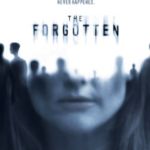The 6th Day (2000)
“Am I really human? Do I have a soul?” Vital questions, these, because they are asked by a cloned man at the end of this new millennium film. We’ll get to the answers a little later.
https://youtu.be/Sz-Abh8opLo
The film’s opening credits set the stage. They quote from Genesis 1 about God creating Man on the 6th Day and seeing that that was good. Then they flash headlines about the cloning of Dolly the sheep in 1997, the mapping of the human genetic code, rallies against cloning, a “human cloning failure,” laws passed against human cloning, and the legends, “In the near future” and “Sooner than you think.”
The film posits cloners of human beings as the bad guys. Really bad guys. In this not-too-distant future, cloning pets, other animals, and fish is legal and highly profitable, but trying to clone people carries a mandatory minimum sentence of 40 years. The movie’s opening sequence gives us an idea of things to come. Johnny Phoenix (Steve Bacic), quarterback of a pro football team owned by the cloning giant Replacement Technologies, suffers an apparent near-fatal injury on the field but is whisked away, euthanized in an ambulance…and later pronounced ready for next week’s game.
The movie’s hero is Adam – gosh, any significance in that name? – Gibson (Arnold Schwarzenegger), a family man and commercial helicopter pilot. It’s his birthday, but first he must fly Replacement Tech’s boss Michael Drucker (Tony Goldwyn) to a mountaintop ski lodge. Adam’s pal Hank Morgan (Michael Rapaport) takes his place as pilot and temporarily takes his identity, too, so that Adam, who opposes cloning as interference with the natural process of death, can have time that day to consider having his just-deceased family dog cloned to spare his daughter Clara (Taylor Anne Reid) from grief. On the mountaintop, though, an assassin opens fire.
In a sudden cut to the next scene, a cab carries an unconscious Adam to a mall, where he wakes up as if he’d been asleep. As he approaches a pet-cloning shop, anti-cloning protestors tell him, “God doesn’t want you to go in there.” Unfortunately, the supposedly anti-cloning Adam commits blasphemy by replying, “Then God wouldn’t have killed my dog.” Nevertheless, he doesn’t order his dog cloned.
Coming home that evening with a lifelike doll for Clara, Adam is shocked to see his dog alive; his wife Natalie (Wendy Crewson) has had him cloned. Then, peering into a front window, Adam is stunned to see a guy exactly like himself enjoying his birthday party. Before he can think what to do, a hit man and woman try to kidnap and kill him because he would now be aware that Drucker is cloning humans. The ensuing fight and chase end with the attackers dead and Adam escaping more killers by making an impossibly high dive into a river, like a Dr. Richard Kimble or a Jason Bourne.
(Language warning)
https://youtu.be/nN5oZ1BJAFs
Soon we see Drucker inside his industrial-sized lab with his Dr. Frankenstein – actually, Dr. Griffin Weir (Robert Duvall) – as the hit woman wakes up, cursing, after being cloned. She is clearly unclad, but is carefully concealed from our view – hence the film’s PG-13 rating – although when she gets off a table her side and backside are briefly visible from a distance. Scenes such as this should remind us that movie industry preying on women is not confined to rapes, molestations and harassment; making women perform naked or half-naked in movies, though pervasive, is victimization rooted in misogyny.
Onward: The anti-cloning assassin who appeared earlier now kills Adam’s pilot buddy Hank, is injured by Adam, reveals to him that Hank was a clone and Drucker is, too, and then kills himself. Adam gets inside Drucker’s headquarters and confronts Weir, saying, “I want my life back.” Weir gives Adam a memory disk – “an exact picture of your mind,” which, used along with a DNA sample, is how they clone people (in a mere two-hour process!). Weir also gives Drucker’s memory disk to Adam to use as leverage.
Jeopardy now increases in the third act. Adam escapes, Drucker’s thugs kidnap Adam’s wife and child, Drucker murders a now disaffected Weir, and Adam and his other self, as it were, meet and agree to save “their” family and destroy Drucker’s lab. But Drucker captures Adam and – SPOILER ALERT – reveals that the man we thought was the original Adam is actually the clone, rather than the Adam he saw in his home before.

Clone Adam manages to mortally wound Drucker, who though dying manages to start to clone a copy of himself. The family is saved, Drucker’s lab is destroyed, Drucker and his not-quite-completed and hence physically hideous clone – shown at first prone and naked but carefully concealed, and then shown standing naked, from a great distance – attack Clone Adam but fail, fatally, and the two Adams escape for good.

In the denouement, Adam sets up Clone Adam to start a branch of his helicopter firm in Patagonia. This is when Clone Adam wonders if he is human and if he has a soul. Adam tells him that his DNA scan came back normal, and that, inasmuch as Clone Adam was willing to die to save the family, “If that’s not being human I don’t know what is.”

In real life, it is not possible to clone someone’s soul, and we can only speculate about a human clone’s nature. Some wisecracks in the film make light of human cloning; e.g., Adam wants to kill his “double” for romancing his wife, but friend Hank warns him, “Technically, this could be suicide.” And Adam tells Clara, “I’m sorry, but I haven’t been myself lately.”
But other lines spotlight the evil of human cloning. When Adam asks Drucker who gets to decide who lives and who dies, Drucker says he himself does and asks Adam if he has a better idea. Adam replies, “What about God?” Drucker commits blasphemy by claiming he has conquered death and has “taken over where God left off.” Later, negotiating to try to save his life, the imperfectly cloned Drucker blasphemes too, offering Clone Adam “a chance to live forever” and to be “perfect in every way.”
The best response to the whole notion of people playing God via such human cloning experiments is to listen to God, via St. Paul: “…it is appointed that human beings die once, and after this the judgment…” – Hebrews 9:27, NAB
The MPAA rated The 6th Day PG-13 for “strong action violence, brief strong language and some sensuality.” Roger Spottiswoode directed. Cormac Wibberley and wife Marianne Wibberley wrote the script. Trevor Rabin composed the score. Pierre Mignot was the cinematographer. Cormac Wibberley’s father was Dublin-born Leonard Wibberley, who wrote The Mouse That Roared, the 1955 novel that inspired the 1959 film comedy of the same title.
— Dan Engler














